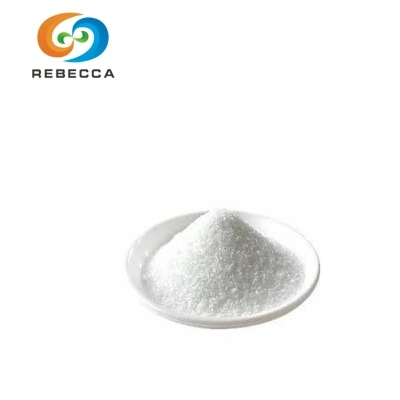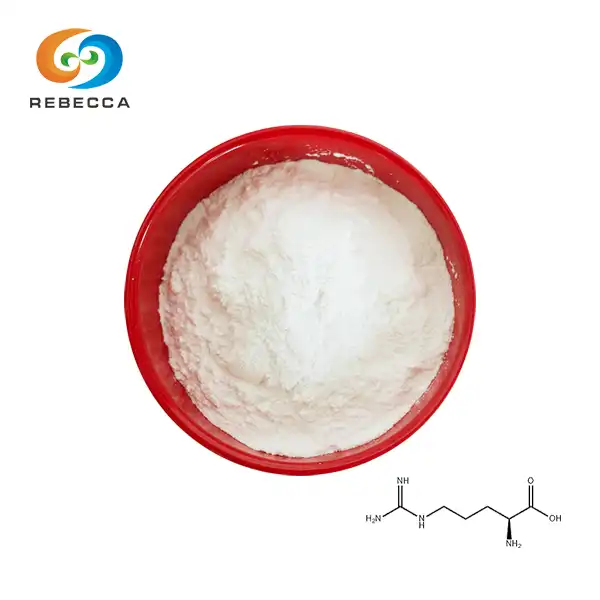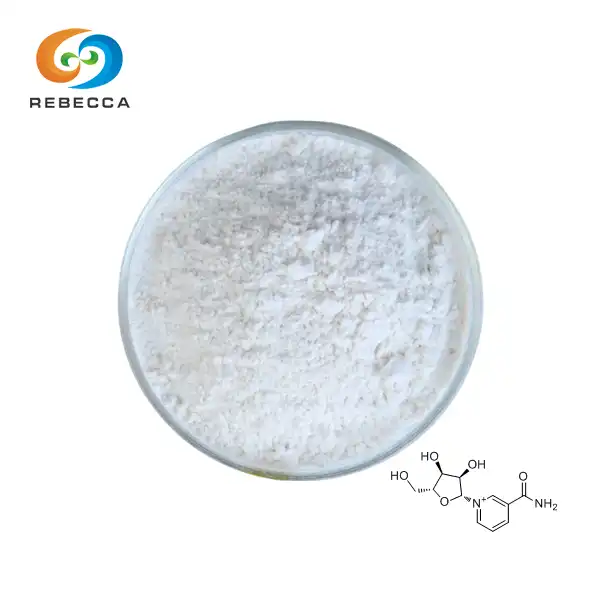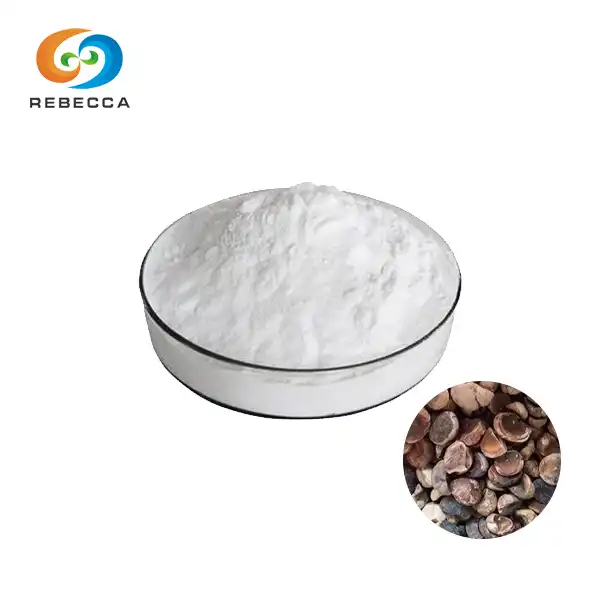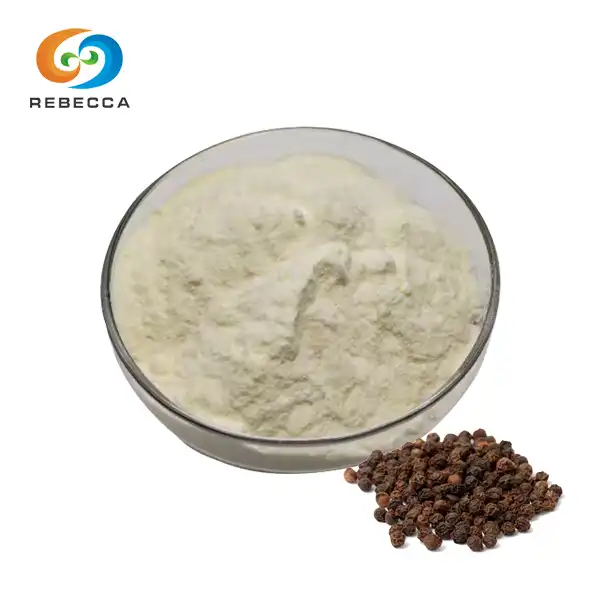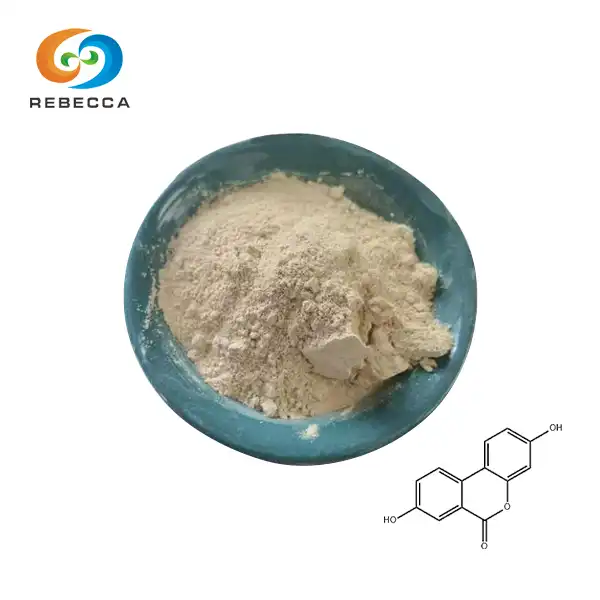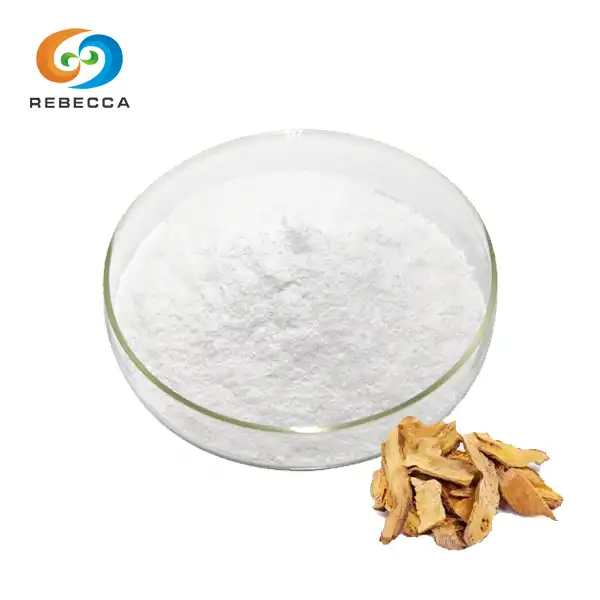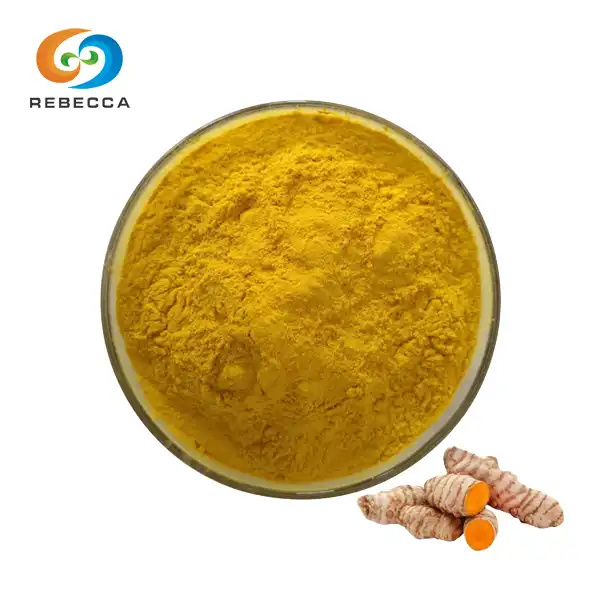Understanding Synephrine Hydrochloride Powder
Synephrine hydrochloride powder has garnered significant attention in the world of dietary supplements and weight management. This naturally occurring compound, found primarily in bitter orange fruit, has become a popular ingredient in many fitness and weight loss products. But what exactly is synephrine hydrochloride, and how does it work? Let's delve into the science, comparisons, and common misconceptions surrounding this intriguing substance.

The Science Behind Synephrine
Synephrine hydrochloride, also known as p-synephrine or oxedrine, is an alkaloid compound found naturally in certain citrus fruits, particularly bitter orange (Citrus aurantium). It's structurally similar to ephedrine, a once-popular weight loss aid that has since been banned in many countries due to safety concerns.
The primary mechanism of action for synephrine involves its ability to stimulate beta-3 adrenergic receptors. These receptors play a crucial role in lipolysis - the breakdown of fat cells - and thermogenesis, which is the production of heat in the body. By activating these receptors, synephrine may potentially increase metabolic rate and enhance fat burning.
Research has shown that synephrine can lead to modest increases in energy expenditure and fat oxidation. A study published in the International Journal of Medical Sciences found that subjects who consumed synephrine experienced a 65 kcal increase in daily energy expenditure compared to a placebo group.
Moreover, synephrine appears to have a milder stimulant effect compared to other compounds like ephedrine or caffeine. This means it may provide some of the benefits of stimulants without as many of the side effects, making it an attractive option for those seeking a gentler approach to weight management supplements.

Comparing Synephrine to Other Supplements
When it comes to weight loss and energy-boosting supplements, synephrine is often compared to other popular ingredients. Let's examine how it stacks up against some of these alternatives:
Synephrine vs. Caffeine: Both substances can increase energy expenditure and fat oxidation. However, caffeine is a more potent central nervous system stimulant, which can lead to jitters, anxiety, and sleep disturbances in some individuals. Synephrine, on the other hand, tends to have a milder stimulant effect, potentially making it more tolerable for those sensitive to caffeine.

Synephrine vs. Ephedrine: Ephedrine was once a popular weight loss aid but has been banned in many countries due to safety concerns. Synephrine Hydrochloride is often touted as a safer alternative, as it appears to have less impact on heart rate and blood pressure. However, it's also generally considered less potent than ephedrine for weight loss purposes.

Synephrine vs. Green Tea Extract: Green tea extract, particularly its active compound EGCG, is another popular ingredient in weight loss supplements. While both can potentially boost metabolism, green tea extract works through different mechanisms, including the inhibition of certain enzymes involved in fat storage. Some supplements combine synephrine and green tea extract for potentially synergistic effects.

Synephrine vs. Yohimbine: Yohimbine is another natural compound used in some weight loss supplements. It works by blocking alpha-2 adrenergic receptors, which can enhance fat burning, particularly in stubborn areas. However, yohimbine can cause more side effects than synephrine, including anxiety and elevated heart rate.

Common Myths About Synephrine Debunked
Despite its growing popularity, there are several misconceptions about synephrine that deserve clarification:
Myth 1: Synephrine is the same as ephedrine.
Reality: While structurally similar, synephrine and ephedrine are distinct compounds with different effects on the body. Synephrine appears to have a milder impact on the cardiovascular system compared to ephedrine.
Myth 2: Synephrine guarantees significant weight loss.
Reality: While Synephrine Hydrochloride may contribute to increased energy expenditure and fat oxidation, its effects are generally modest. It should be viewed as a potential aid to a comprehensive weight loss plan that includes proper diet and exercise, not a magic solution.
Myth 3: Synephrine is completely safe with no side effects.
Reality: Although synephrine appears to have a better safety profile than some alternatives, it can still cause side effects in some individuals, particularly at high doses. These may include increased heart rate, elevated blood pressure, and digestive discomfort.
Myth 4: All synephrine supplements are created equal.
Reality: The quality and potency of synephrine supplements can vary significantly between manufacturers. It's crucial to choose products from reputable sources and to pay attention to the specific form of synephrine used (p-synephrine is generally considered the most effective).
Myth 5: Synephrine is illegal or banned in sports.
Reality: Unlike ephedrine, Synephrine Hydrochloride is not banned by most major sports organizations or regulatory bodies. However, athletes should always check with their specific governing bodies, as rules can vary.

Conclusion
Synephrine hydrochloride powder represents an intriguing option in the world of dietary supplements. While it shows promise for potentially boosting metabolism and aiding in weight management, it's essential to approach its use with realistic expectations and an understanding of its effects and limitations.
As with any supplement, it's crucial to consult with a healthcare professional before incorporating synephrine into your regimen, especially if you have any pre-existing health conditions or are taking medications. Remember, supplements should complement, not replace, a balanced diet and regular exercise routine.
For more information about synephrine hydrochloride powder and other natural herbal extracts, please contact us at information@sxrebecca.com. Our team of experts is ready to answer your questions and provide high-quality, natural products to support your health and wellness goals.
References
1. Stohs, S. J., Preuss, H. G., & Shara, M. (2011). The safety of Citrus aurantium (bitter orange) and its primary protoalkaloid p-synephrine. Phytotherapy Research, 25(10), 1421-1428.
2. Kaats, G. R., Miller, H., Preuss, H. G., & Stohs, S. J. (2013). A 60day double-blind, placebo-controlled safety study involving Citrus aurantium (bitter orange) extract. Food and Chemical Toxicology, 55, 358-362.
3. Ratamess, N. A., Bush, J. A., Kang, J., Kraemer, W. J., Stohs, S. J., Nocera, V. G., ... & Faigenbaum, A. D. (2016). The effects of supplementation with p-synephrine alone and in combination with caffeine on metabolic, lipolytic, and cardiovascular responses during resistance exercise. Journal of the American College of Nutrition, 35(8), 657-669.
4. Gutiérrez-Hellín, J., & Del Coso, J. (2018). Acute p-synephrine ingestion increases fat oxidation rate during exercise. British Journal of Clinical Pharmacology, 84(8), 1693-1699.
5. Marchtand, B., Saldanha, D., & Desai, M. (2019). A review on Citrus aurantium: Its functions, pharmacological activities and safety profile. International Journal of Pharmaceutical Sciences and Research, 10(4), 1585-1594.
_1730691017423.webp)










